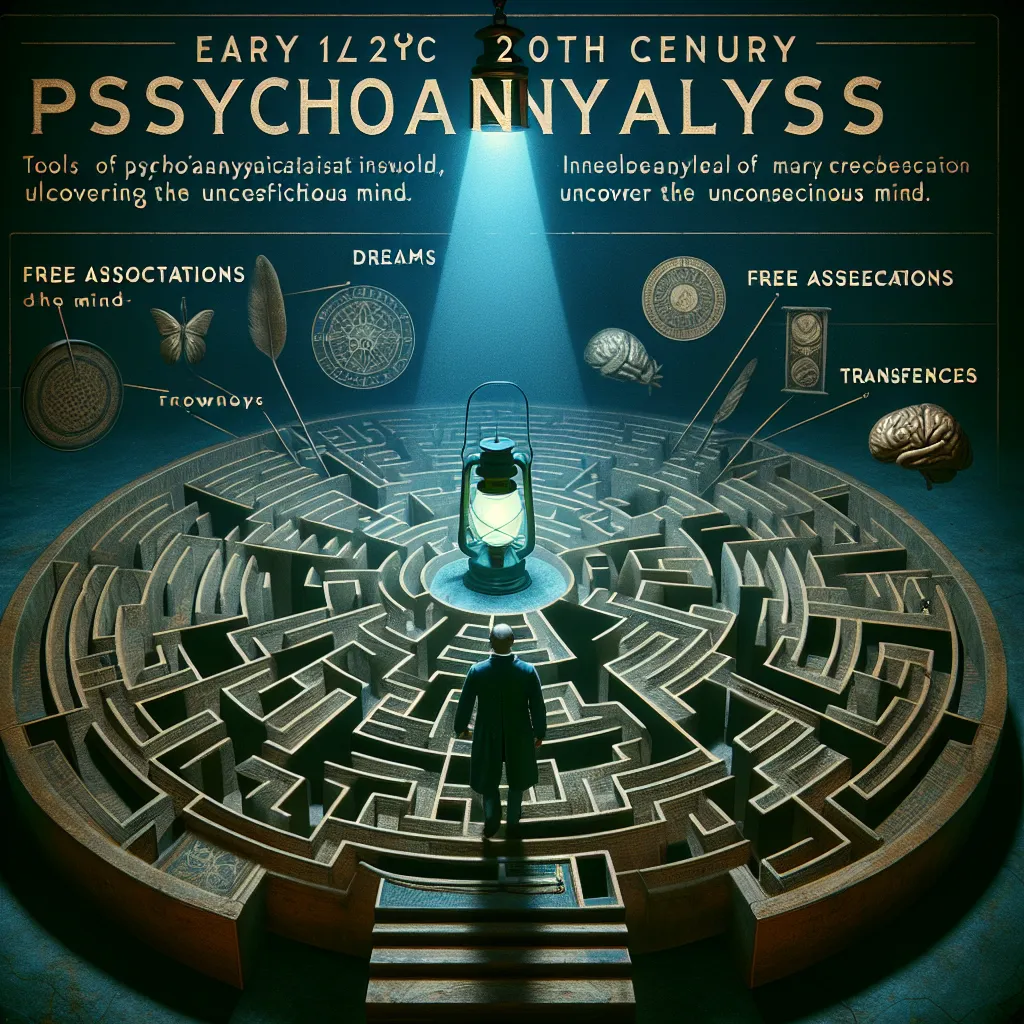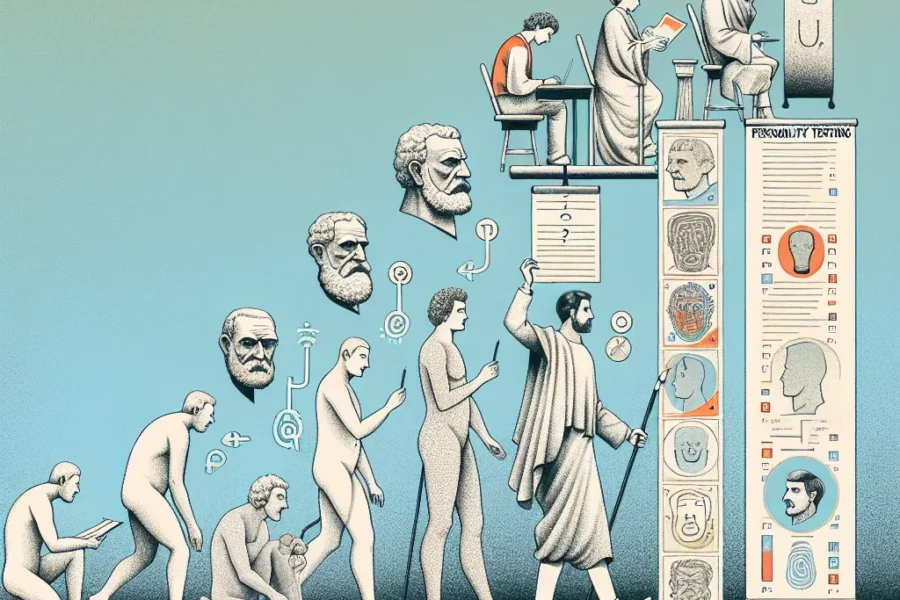Sigmund Freud, the father of psychoanalysis, is renowned for his revolutionary work in psychology and his theory of the unconscious mind. His research and findings transformed our understanding of human behavior, depth psychology, and the intricate workings of the psyche. Freud’s pioneering work in uncovering the unconscious mind has had a lasting impact on not only psychology but also on literature, art, and popular culture.
At the heart of Freud’s theory lies the concept of the unconscious mind – a reservoir of feelings, thoughts, urges, and memories that are outside of our conscious awareness. According to Freud, the unconscious mind exerts a powerful influence over our actions and feelings, even though we are unaware of these underlying influences. He proposed that the mind is divided into three parts: the conscious, the preconscious, and the unconscious.
The conscious mind includes everything we are aware of at any given moment; it consists of our current thinking processes, perceptions, and data we are examining. The preconscious mind contains memories and stored knowledge that we can bring into consciousness when desired. However, it is the unconscious mind that intrigued Freud the most, as it holds our deepest desires and the memories that have been repressed due to being too unsettling or traumatic for the conscious mind to process.
Freud’s pioneering work was presented in his book “The Interpretation of Dreams” published in 1899. In this seminal work, Freud proposed that dreams provide vital insights into the unconscious mind. He introduced the technique of dream analysis which involved examining dreams to uncover the latent content—the underlying thoughts and desires that the unconscious mind expresses through symbols and metaphors in the manifest content or the dream that we remember.
Another significant aspect of Freud’s theory is the structure of personality, which he described as comprising of the id, ego, and superego. The id represents our primal instinctual drives and operates according to the pleasure principle, seeking immediate gratification. The ego, governing reason and common sense, works on the reality principle and acts as a mediator between the desires of the id and the morals of the superego. The superego develops during childhood and represents internalized moral standards and ideals that we acquire from our parents and society.
Freud also introduced the defense mechanisms, unconscious psychological strategies brought into play by various entities of the personality to handle reality and maintain self-image. These mechanisms, such as repression, denial, and projection, are used to cope with anxiety and protect the mind from things it cannot cope with. Repression is perhaps the most significant defense mechanism, as it involves pushing disturbing thoughts and feelings out of conscious awareness into the unconscious.
One of Freud’s famous techniques for exploring the unconscious mind is free association, in which patients are encouraged to verbalize thoughts as they come to mind, without censorship or judgment. This method was used to uncover the unconscious content underlying their symptoms. Another technique is transference, where patients transfer feelings they have for others onto the therapist, which can reveal previous relationships and unresolved conflicts from the unconscious.
Freud’s exploration of the unconscious brought forth the concept of inner conflict, where the clash of opposing forces within the unconscious mind can lead to psychological discomfort and eventually psychopathology. This is exemplified through his case studies, such as that of “Anna O.” and “Dora,” which illustrated how unresolved conflicts within the unconscious could manifest in physical and psychological symptoms.
Despite the profound influence of Freud’s work, his theories have not been without criticism. Some contemporary psychologists argue that his work lacked empirical evidence and was overly deterministic. However, many elements of his work have been validated by modern psychological research. For instance, contemporary neuroscience has revealed that much of our cognitive processing happens outside of conscious awareness, thus supporting Freud’s notions about the unconscious mind.
Moreover, Freud’s impact extended beyond psychology into various other fields. His ideas led to new approaches in the therapeutic process, influencing practices in counseling and social work. Literary critics frequently use Freudian concepts to analyze texts, exploring the unconscious motives and conflicts of characters. In art, Surrealism was profoundly influenced by Freud’s exploration of the unconscious, with artists such as Salvador Dali depicting dreamlike landscapes that sought to represent the inner workings of the unconscious mind.
Freud’s work continues to be a significant point of reference in debates concerning the mind and human behavior. The discussion of unconscious processes informs modern psychology’s understanding of mental processes, including the concepts of implicit bias and subconscious decision-making. Freud’s fingerprint on the mental map of human understanding is indelible, inspiring ongoing research and dialogue.
In conclusion, Freud’s pioneering work in uncovering the unconscious mind was groundbreaking and has profoundly influenced the field of psychology as well as other disciplines. His contribution to our understanding of the complex, often hidden forces that govern our thoughts and behaviors cannot be overstated. Although the legitimacy of some of his ideas has been contested and evolved over time, the significance of the unconscious mind remains a fixture in contemporary psychological thought. As we continue to explore the depths of the human psyche, the echo of Freud’s voice is unmistakably present in the conversation about what it means to be human and the mysterious realm of the unconscious.



Leave a Comment